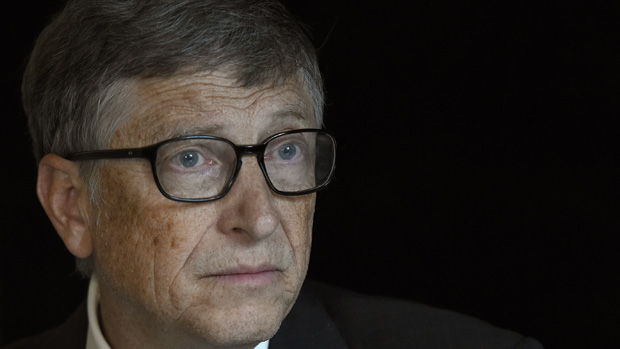Bill Gates: Artificial Intelligence is a threat to humans
'I am in the camp that is concerned about super intelligence', says Microsoft founder

A free daily email with the biggest news stories of the day – and the best features from TheWeek.com
You are now subscribed
Your newsletter sign-up was successful
Bill Gates, the founder of Microsoft, says humans should be concerned about the threat posed to them by the rise of artificial intelligence.
The comments came just a few days after a senior member of Microsoft Research, Eric Horvitz said that he "fundamentally" did not believe AI presented any great risks.
Gates' contradictory view of the potential harm that AI could cause humans was expressed during an "ask me anything" Q&A session on Reddit.
The Week
Escape your echo chamber. Get the facts behind the news, plus analysis from multiple perspectives.

Sign up for The Week's Free Newsletters
From our morning news briefing to a weekly Good News Newsletter, get the best of The Week delivered directly to your inbox.
From our morning news briefing to a weekly Good News Newsletter, get the best of The Week delivered directly to your inbox.
In response to a user's question, Gates wrote: "I am in the camp that is concerned about super intelligence. First the machines will do a lot of jobs for us and not be super intelligent. That should be positive if we manage it well. A few decades after that though the intelligence is strong enough to be a concern. I agree with Elon Musk and some others on this and don't understand why some people are not concerned."
Gates is not alone in his fears about the potential threat posed by machines. Professor Stephen Hawking recently said he believed it was entirely possible that machines equipped with sophisticated AI could "spell the end of the human race".
US entrepreneur Elon Musk, speaking at the Massachusetts Institute of Technology (MIT) AeroAstro Centennial Symposium in October also expressed fears about the future of technology, arguing that AI is humanity's "biggest existential threat".
He said: "I think we should be very careful about artificial intelligence. If I had to guess at what our biggest existential threat is, it's probably that. So we need to be very careful with artificial intelligence. I'm increasingly inclined to think that there should be some regulatory oversight, maybe at the national and international level, just to make sure that we don't do something very foolish.
A free daily email with the biggest news stories of the day – and the best features from TheWeek.com
"With artificial intelligence we're summoning the demon."
Microsoft researcher Horvitz, however, takes a different view. In a recent interview he said: "There have been concerns about the long-term prospect that we lose control of certain kinds of intelligences. I fundamentally don't think that's going to happen."
He added: "I think that we will be very proactive in terms of how we field AI systems, and that in the end we'll be able to get incredible benefits from machine intelligence in all realms of life, from science to education to economics to daily life."
In spite of his fears, Gates said that if Microsoft had not been a success, by now he "would probably be a researcher in AI".